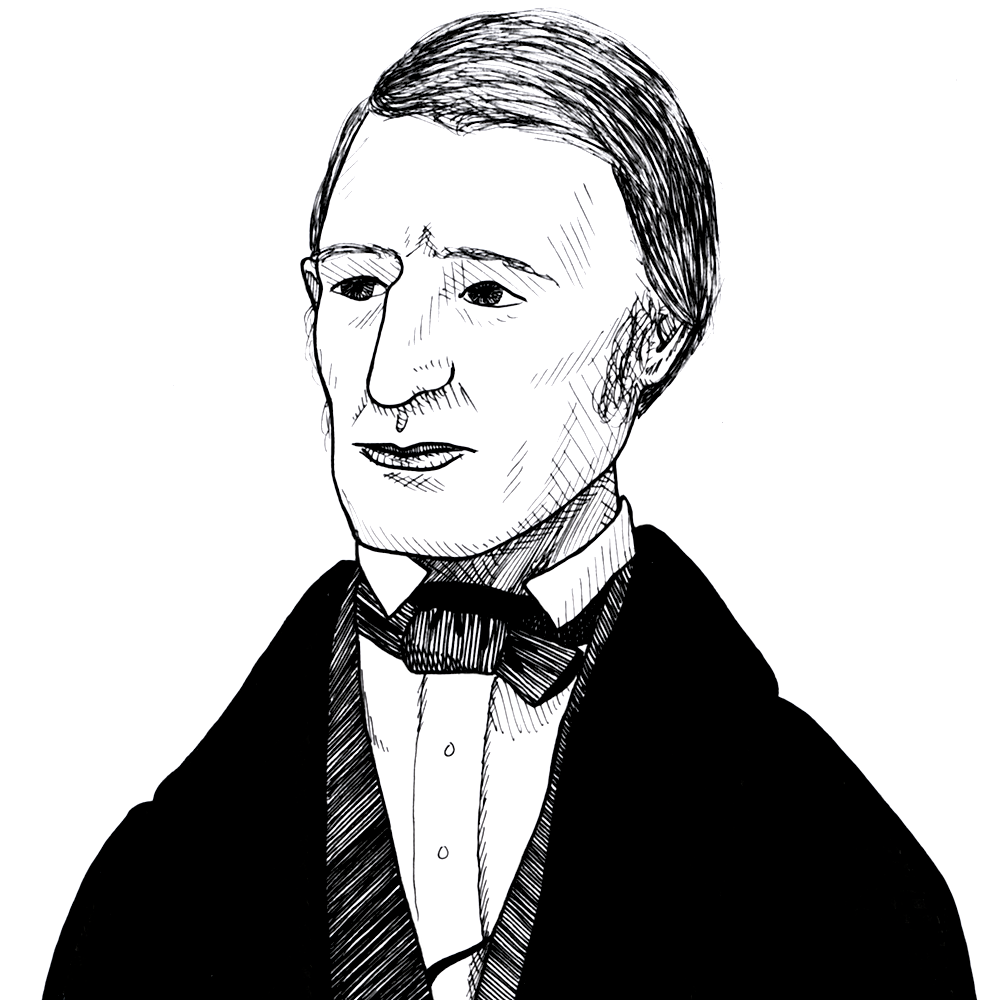
Emerson on selecting the right gift to give at Christmas and New Year (1844)
Found in: The Works of Ralph Waldo Emerson, vol. 3 (Essays. Second Series)
In his second series of essays which the individualist philosopher and abolitionist Ralph Waldo Emerson (1803-1882) published in 1844 he ponders the correct gift to give at this time of the year. He concludes that two types of gifts are best: flowers because they are “a ray of beauty (which) outvalues all the utilities of the world”, and things which convey something of “a man’s biography”:
Odds & Ends
If at any time it comes into my head that a present is due from me to somebody, I am puzzled what to give, until the opportunity is gone. Flowers and fruits are always fit presents; flowers, because they are a proud assertion that a ray of beauty outvalues all the utilities of the world. These gay natures contrast with the somewhat stern countenance of ordinary nature: they are like music heard out of a work-house. Nature does not cocker us; we are children, not pets; she is not fond; everything is dealt to us without fear or favor, after severe universal laws. Yet these delicate flowers look like the frolic and interference of love and beauty. Men use to tell us that we love flattery even though we are not deceived by it, because it shows that we are of importance enough to be courted. Something like that pleasure, the flowers give us: what am I to whom these sweet hints are addressed?..
Next to things of necessity, the rule for a gift, which one of my friends prescribed, is that we might convey to some person that which properly belonged to his character, and was easily associated with him in thought. But our tokens of compliment and love are for the most part barbarous. Rings and other jewels are not gifts, but apologies for gifts. The only gift is a portion of thyself. Thou must bleed for me. Therefore the poet brings his poem; the shepherd, his lamb; the farmer, corn; the miner, a gem; the sailor, coral and shells; the painter, his picture; the girl, a handkerchief of her own sewing. This is right and pleasing, for it restores society in so far to the primary basis, when a man’s biography is conveyed in his gift, and every man’s wealth is an index of his merit.